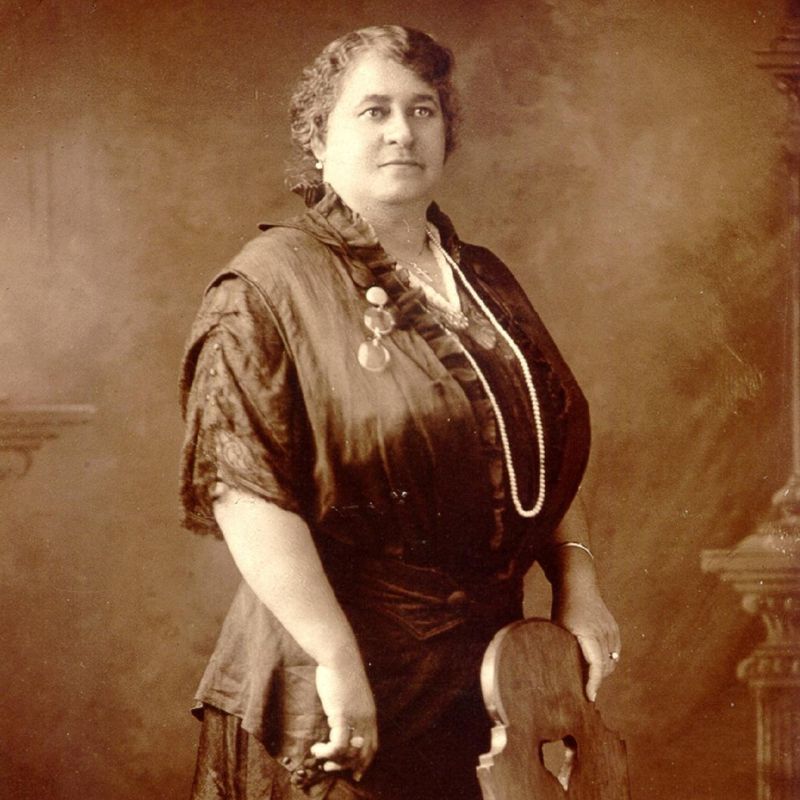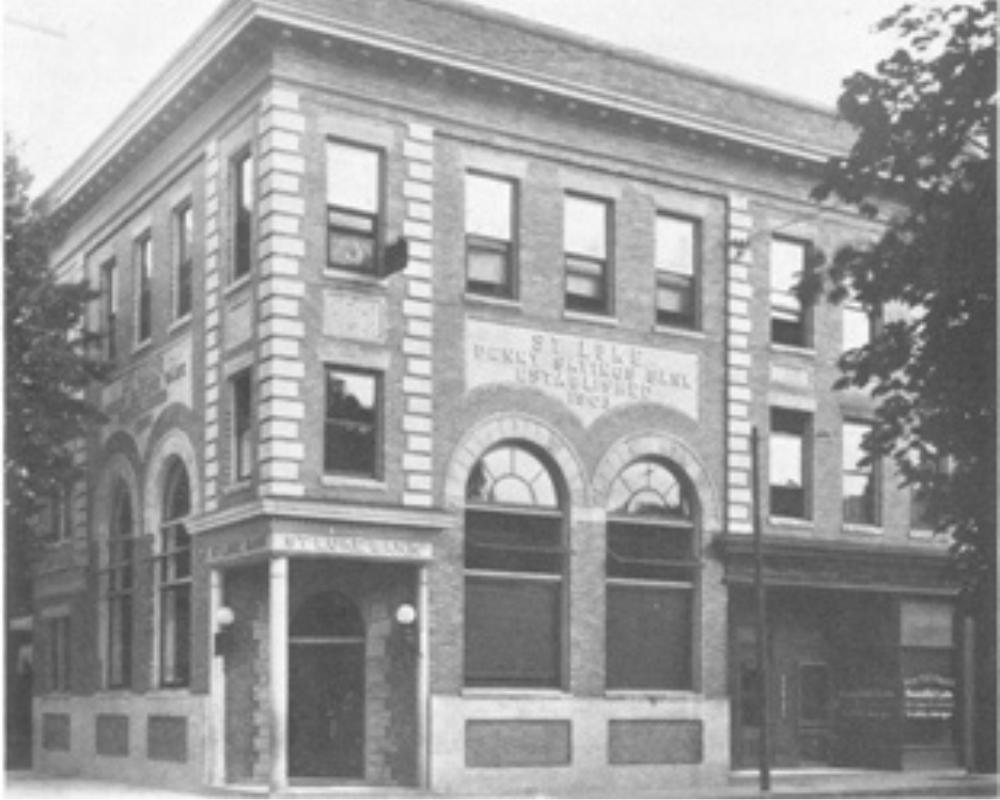Our Namesake: Maggie L. Walker
Maggie Lena Walker (1864 – 1934) was the first woman of color to establish a bank in the United States. She was a community and business leader in Richmond, and her efforts to create and manage the St. Luke Penny Savings Bank left a powerful legacy for black families in the city. The bank was an effort to utilize African-American financial resources for the good of the community, providing fairly priced loans and mortgages to black families and empowering them to own homes, open businesses, and create economic opportunities for themselves and future generations.
The Maggie Walker Community Land Trust is named to honor a visionary leader and her legacy in the city of Richmond. In her name, we work to ensure that the communities of the Richmond metropolitan region are diverse and inclusive, with safe, attractive, affordable, and sustainable housing choices for all people. To learn more about Maggie Walker’s life and legacy, visit the Maggie L. Walker National Historic Site in Jackson Ward.
Who Was Maggie L. Walker?
Maggie L. Walker was born Maggie L. Draper on July 15, 1864, taking her mother Elizabeth Draper’s surname. Elizabeth Draper was born enslaved, but at the time of Maggie’s birth was effectively free and employed as a cook in the household of Elizabeth Van Lew in Church Hill. Van Lew was a prominent white philanthropist, abolitionist, and Union spy.
Walker’s father was most likely Eccles Cuthbert, a former Confederate soldier and journalist writing for the New York Herald, which was a staunchly pro-slavery paper at the time. Cuthbert and Draper were never married due to Virginia’s laws against interracial marriage.
After Maggie’s birth, her mother married another of Van Lew’s employees, a butler named William Mitchell. Her name was changed to Maggie Mitchell, and in 1870 her step-brother Johnnie was born.
Maggie’s stepfather found new employment as the headwaiter at the Saint Charles Hotel and the Mitchell family rented their first home independently. The home was on College Street, near the original First African Baptist Church downtown on the present-day VCU Medical Center campus. The Mitchell family attended First African, which was (and still is) a center for Black cultural, economic, and political life, as most Black churches were.
After William Mitchell tragically drowned in the James River, his widow Elizabeth supported her two children by starting a laundry business. During this time, Maggie helped her mother by carrying loads of laundry on foot across the city to the homes of their white customers. At the same time, she was enrolled in the newly created Richmond Public Schools.
At age 14, Maggie joined the Independent Order of St. Luke, a Black fraternal organization originally founded by and made up primarily of women, which provided aid to Black families, businesses, and institutions.
Maggie Mitchell graduated from the Richmond Colored Normal School (later renamed Armstrong High School) and became a teacher for three years until she married Armistead Walker, Jr., a construction worker, in 1886 and changed her name to Maggie Lena Walker.
After leaving her teaching position, Walker dedicated herself to the Order of St. Luke, rising through the ranks to become its Right Worthy Grand Secretary in 1899. Having saved the Order from financial insolvency, Walker set out on an ambitious plan that would see the Order found a newspaper, the St. Luke Herald, and a bank, the St. Luke Penny Savings Bank.
Maggie Walker chartered the St. Luke Penny Savings Bank in 1903 and served as the Chair of its Board of Directors, making her the first Black woman to do both in the country. By 1920, the St. Luke Penny Savings Bank had issued more than 600 mortgage loans to black homebuyers. Maggie Walker herself also owned rental properties in Jackson Ward and rented them for low rates to Black families.
Maggie Lena Walker continued as the head of the Order and led the St. Luke Penny Savings Bank in the aftermath of the 1929 financial crisis. It merged with two other Black-owned banks in 1930 and 1931 to form the Consolidated Bank and Trust, which she also chaired until her death in 1934.
Her impact in Richmond
Maggie L. Walker touched the lives of countless Richmonders over her career. As a member of the Order of St. Luke, she was instrumental in building solidarity and community between Black Richmonders, especially in Jackson Ward. As founder and chair of the St. Luke Penny Savings Bank, she helped launch independent Black businesses in Richmond, leading to the golden age of Richmond’s “Black Wall Street,” and provided access to housing for hundreds of Black families. Through her work, she grew not just her own wealth, but the wealth of her entire community. Maggie L. Walker’s prosperous life uplifted everyone around her.
How We Uphold Her Legacy
The Maggie Walker Community Land Trust chose our name to invoke the legacy of Maggie L. Walker: building community wealth and empowering Richmonders of color. We recognize that in invoking her name, we have a responsibility to that legacy, and to the communities that she helped in her lifetime.
This is why we center racial equity in our mission statement, and why we believe in permanent affordability. Using the CLT model, we can go beyond helping one family achieve homeownership. Each new family in a CLT home has the opportunity to help another family after them, spreading the benefit of affordability throughout entire communities.



